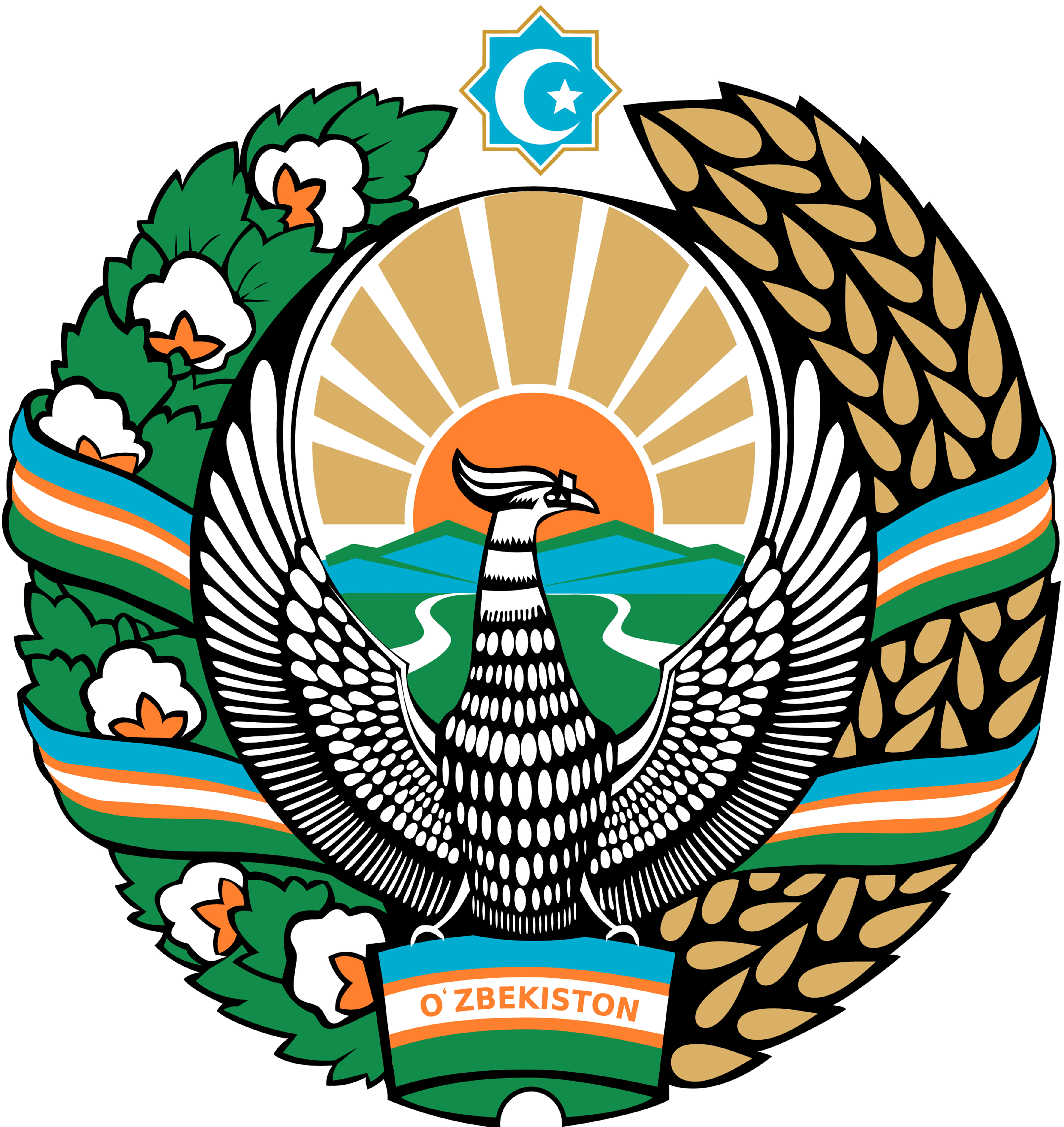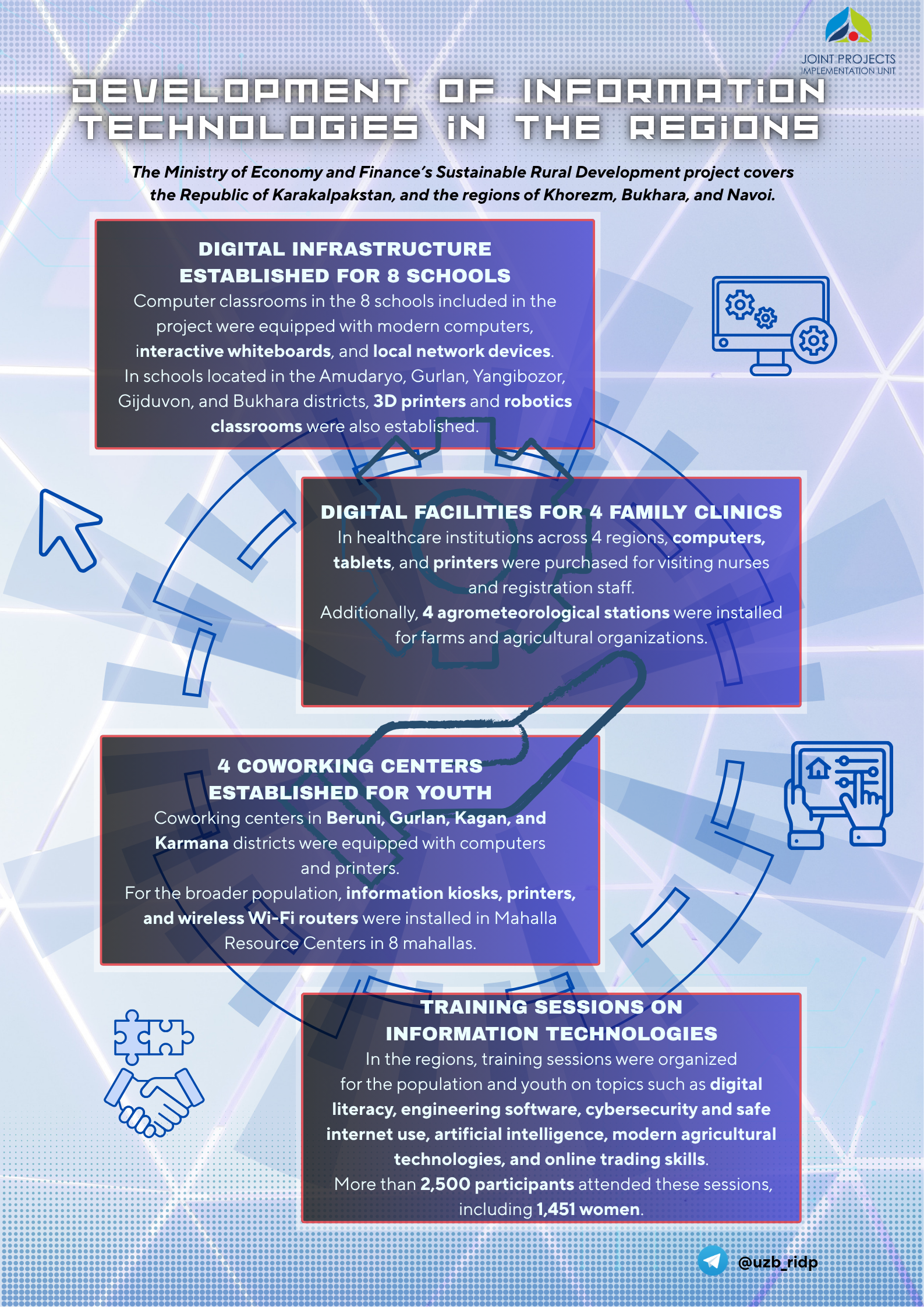

News
In order to improve convenience for the population living in the four regions where the Sustainable Rural Development project is being implemented, namely the Republic of Karakalpakstan, Khorezm, Bukhara, and Navoi regions, a number of tasks have been identified to increase digital literacy and access to digital technologies.
In cooperation with the supporting partner of the project, the United Nations Development Programme, several initiatives have been carried out so far to develop digital infrastructure in schools, such as equipping computer classes with ICT tools, providing visiting nurses at family health centers with tablets, installing agrometeorological stations for agriculture, and equipping youth co-working centers with computers.
Specifically, since the start of the project, computer classes have been established in 8 schools across the 4 regions, and they have been equipped with modern computers, interactive whiteboards, and local network equipment. The schools were selected based on the number of students, the condition of existing computer classrooms, the distance from the regional centers, and recommendations from the district departments of preschool and school education regarding their level of digital readiness.
Computers, printers, and tablets were also distributed to nurses and registration staff at family health centers in Ellikqala, Bogot, Bukhara, and Karmana districts. These allocations were based on the number of people served, the number of available doctors, and the availability of ICT equipment.
In terms of providing agrometeorological stations to farmers and fruit and vegetable producers, factors such as wide coverage areas, distance from existing stations, total area of the orchards, and level of internet connectivity were taken into account. As a result, 4 agrometeorological stations were installed in agricultural areas of Amudarya, Khonka, Shofirkon, and Navbahor districts.
To help youth enhance their digital skills and enable the public to use electronic services, Mahalla Resource Centers were established in 8 mahallas. These centers have information corners, printers, and wireless Wi-Fi routers.
In addition, co-working centers for youth were established in four newly built mahalla service buildings located in remote areas where there were no previously state-funded resource centers.
In the regions, numerous public training sessions are being held to enhance digital literacy and IT skills among youth and the general population. As part of digital literacy training, residents and mahalla committee staff in 170 mahallas were trained to access government services through www.my.gov.uz, www.mysoliq.uz, and www.mymehnat.uz, including authentication procedures.
Additionally, engineering software training was provided in the four regions for young people interested in learning AutoCAD and 3DMAX.
Within the framework of the project, seminars were also conducted on topics such as cybersecurity and safe internet use, fundamentals of Artificial Intelligence, modern agricultural technologies, and e-commerce skills.
In total, more than 2,500 participants have taken part in these events.
